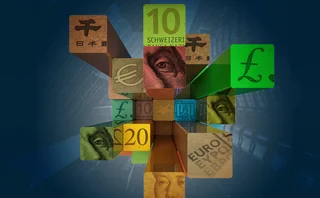
trueEX sues 11 banks over swaps ‘conspiracy’
Platform alleges market-makers acted to preserve dominance of bank-owned Tradeweb

trueEX, an electronic trading platform for interest rate swaps, has filed a lawsuit in New York against 11 of the largest bank market-makers, accusing them of conspiring to block customers from trading on the platform with the aim of ultimately letting trueEX “die on the vine”.
The lawsuit, filed on June 14, alleges the accused banks protected Tradeweb – a competing swap execution facility (Sef) which is partly owned by a consortium of banks – by continuously delaying signing up to trueEX
Only users who have a paid subscription or are part of a corporate subscription are able to print or copy content.
To access these options, along with all other subscription benefits, please contact info@risk.net or view our subscription options here: http://subscriptions.risk.net/subscribe
You are currently unable to print this content. Please contact info@risk.net to find out more.
You are currently unable to copy this content. Please contact info@risk.net to find out more.
Copyright Infopro Digital Limited. All rights reserved.
As outlined in our terms and conditions, https://www.infopro-digital.com/terms-and-conditions/subscriptions/ (point 2.4), printing is limited to a single copy.
If you would like to purchase additional rights please email info@risk.net
Copyright Infopro Digital Limited. All rights reserved.
You may share this content using our article tools. As outlined in our terms and conditions, https://www.infopro-digital.com/terms-and-conditions/subscriptions/ (clause 2.4), an Authorised User may only make one copy of the materials for their own personal use. You must also comply with the restrictions in clause 2.5.
If you would like to purchase additional rights please email info@risk.net
More on Markets
Funds tap options on FX vol amid tariff disruptions
Dealers say vanillas, digitals and knockouts on realised vol increasingly used to navigate Trump news flow
Crossed signals: row over collusion pits scholars against traders
An Oxford study claims to show evidence of collusion in ETF markets. Some traders give it short shrift.
Hedge funds could look to bypass UST clearing mandate
New paper argues that repo users might relocate offshore or use other means to avoid US Treasury clearing dragnet
EU bond-futures basis flip spells curtains for netting
Alignment with US positions brings higher balance sheet usage, while low returns also a turn-off say traders
Corporates eye complex FX hedges as carry costs mount
Leveraged forwards and options-based structures entice treasurers facing rates uncertainty and FX volatility
TD’s prop-style trading shop rises up bond rankings
Ascent of bank’s bond trading business comes amid electronification changes in US fixed income market structure
Why vol markets shrugged off Nvidia rout
Gamma, autocalls and stock dispersion helped prevent a broader market meltdown
Reverse dispersion gains traction as implied spread jumps
Inverted strategy on Euro Stoxx 50 gains popularity for profit-taking and correlation play







